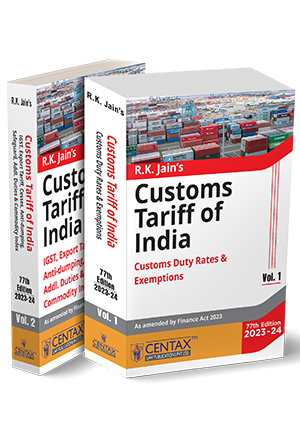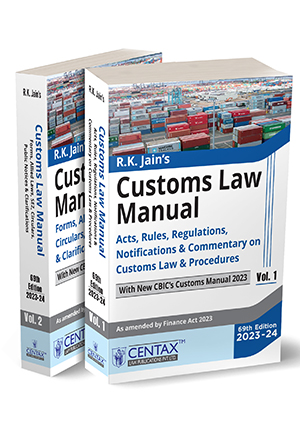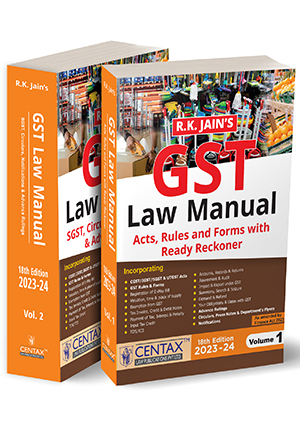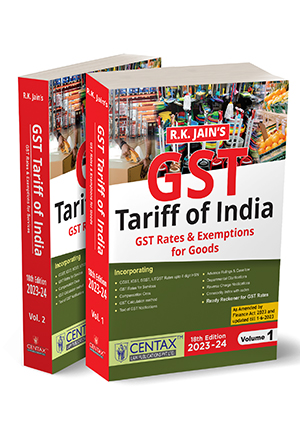[Analysis] SEBI’s Proposal to Enhance the AIF Valuation Framework
- Blog|Advisory|Company Law|
- 8 Min Read
- By Taxmann
- |
- Last Updated on 28 May, 2024

The AIF (Alternative Investment Fund) Valuation Framework is a set of regulations and guidelines established by SEBI to determine the fair value of investment portfolios held by AIFs, which include private equity, venture capital, and hedge funds. Key aspects include: – Regulatory Guidelines: These are defined by SEBI to ensure transparency and consistency – Valuation Norms: Specific norms for listed and unlisted securities, often aligned with mutual fund regulations – Independent Valuers: Must meet eligibility criteria and be registered with relevant authorities – Valuation Methodologies: Methods like discounted cash flow (DCF) and internal rate of return (IRR) for private investments – Material Changes and Disclosures: Guidelines on when changes in valuation methodologies require investor consent and disclosure – Reporting Timelines: Requirements for timely reporting of valuations to performance benchmarking agencies
Table of Contents
1. Introduction
SEBI has issued a Consultation Paper dated May 23rd, 2024, to review specific aspects of the framework for the valuation of investment portfolios of Alternative Investment Funds (AIFs). The primary objective is to seek public comments on proposals to provide relaxation on certain aspects of the AIFs’ valuation framework. Comments on the same may be submitted by June 13th, 2024. The key proposals include (a) the applicability of valuation norms under SEBI (Mutual Fund) Regulations to compute the valuation of AIFs’ investment portfolios, (b) the eligibility criteria for independent valuers to be appointed by AIFs and (c) extending the timeline to report valuation of investments to performance benchmarking agencies to 7 months.
2. Rationale Behind the Proposals
The SEBI (Alternative Investment Funds) Regulations, 2012 (‘AIF Regulations’) were amended and notified on June 15th, 2023. Additionally, a circular dated June 21st, 2023 (included in Chapter 22 of the Master Circular for AIFs dated May 07th, 2024) was issued to guide AIFs in adopting a consistent and standardised approach for valuing their investment portfolios.
Since then, SEBI has received representations from the AIF industry highlighting various issues related to certain aspects of the valuation framework for AIFs. This article captures and addresses these issues and presents proposals to resolve them.
3. SEBI’s Key Proposals
3.1 Applicability of Valuation Norms under SEBI (Mutual Funds) Regulations to Compute Valuation of AIFs’ Investment Portfolio
3.1.1 Extant Norms
SEBI circular on valuation framework for AIFs specifies that the valuation of securities for which valuation norms have already been prescribed under the SEBI (Mutual Funds) Regulations, 1996 (MF Regulations), must be carried out according to the norms prescribed under the MF Regulations.
Further, for securities not covered under the SEBI (Mutual Funds) Regulations, 1996, the valuation must be conducted according to guidelines endorsed by an AIF industry association. This association, in terms of membership, should represent at least 33% of the SEBI-registered AIFs.
The eligible AIF industry association must endorse appropriate valuation guidelines after considering the recommendations of SEBI’s Alternative Investment Policy Advisory Committee (AIPAC).
3.1.2 AIF Industry Recommendations
The AIF industry highlights key disparities with Mutual Fund (MF) Regulations regarding valuation. The valuation norms designed for MFs are unsuitable for AIFs, primarily due to their focus on open-ended vehicle investments, contrasting with AIFs’ emphasis on private instruments.
AIFs mostly hold private investments, which require a fundamental valuation based on relevant cash flows that MF guidelines do not cover.
Further, the fundamental difference between an MF’s and an AIF’s investments lies in the holding period strategy. An MF holds its investments primarily as “Available for Sale” (AFS), while an AIF often favours “Hold Till Maturity” (HTM).
The regulatory objective of the AIF valuation framework is to ensure a standardised approach, facilitating uniform and transparent disclosure of investment portfolio values to all stakeholders.
However, industry feedback highlights fundamental differences between MFs and AIFs in portfolio management and valuation. AIFs engage in diverse investment stages and sectors and often lack tangible assets. Consequently, applying MF valuation norms, which prioritise net worth or earnings per share, may not be suitable.
The industry proposes exempting unlisted securities from the applicability of calculation norms under MF regulations, favouring the adoption of International Private Equity and Venture Capital (IPEV) guidelines. These guidelines offer flexible methodologies like discounted cash flow (DCF) and internal rate of return (IRR), which better align with the complex nature of AIF investments.
3.1.3 SEBI’s Proposal
SEBI has proposed that the framework for AIFs to carry out the valuation of their investment portfolio may be suitably revised to state that:
- Valuation of securities, other than unlisted securities, for which valuation norms have been prescribed under SEBI (Mutual Funds) Regulations, 1996 must be carried out as per the norms prescribed under MF Regulations.
- Unlisted securities must be evaluated per the valuation guidelines endorsed by eligible AIF Industry Association based on the recommendations of AIPAC, i.e., presently, IPEV guidelines.
| Comments |
| This proposal ensures a more accurate and appropriate valuation of AIFs’ diverse investment portfolios by distinguishing between listed and unlisted securities. It aligns valuation practices with the unique characteristics of AIF investments, enhancing transparency and reliability for stakeholders. |
3.2 Change in Valuation Methodology and Approach to be considered as ‘Material Change’
3.2.1 Extant Norms
SEBI circular dated June 21st, 2023, on the valuation framework for AIFs, specifies that any alteration in the methodology and approach for valuing investments of an AIF scheme must be construed as a material change impacting investor decisions.
In instances of significant changes affecting investor decisions, existing unit holders unwilling to continue post-change must be offered an exit option, except in cases where at least 75% of unit holders by investment value approve the change.
However, since a change in the methodology and approach to investment valuation is presently considered a material change for which an exemption based on investor consent is not applicable, AIFs must provide an exit option to all dissenting investors.
3.2.2 AIF Industry Recommendations
SEBI has received various industry feedback regarding valuation methodology changes. Before the circular’s issuance, AIFs employed varied valuation methodologies. Post-circular alignment with IPEV guidelines or MF Regulations is mandated for regulatory compliance. Such a change in valuation methodology is to ensure compliance with the regulatory mandate, and hence, AIFs/investors have no discretion to decide otherwise.
Consequently, such changes in valuation methodology should not be categorised as ‘material changes’, obviating the necessity for AIFs to provide exit options to dissenting investors. Additionally, modifications to valuation methods within the scope of IPEV guidelines should not automatically trigger classification as material changes significantly impact investor decision-making.
Previously, AIFs had flexibility in choosing valuation methodologies, diverging from MF Regulations or IPEV Guidelines. However, SEBI’s mandate now requires alignment with either framework, eliminating discretion for AIFs and investors. Consequently, such changes may not be considered ‘material changes’, although clarity is sought.
Furthermore, any alteration in valuation methods within the IPEV Guidelines or MF Regulations is considered a material change. Both frameworks offer a range of valuation methodologies, allowing managers and valuers to select the most suitable approach based on circumstances. Requiring exit options for dissenting investors due to valuation method changes could burden the industry.
3.2.3 SEBI’s Proposals
Taking into account the recommendations of AIPAC and internal deliberations, SEBI has proposed the following:
- A change in valuation methodology/approach to comply with the Master circular for AIFs on ‘Standardised approach to valuation of the investment portfolio of AIFs’ shall not be construed as a ‘Material Change’.
- A change in methodology/approach within the valuation guidelines/valuation norms prescribed for AIFs shall not be construed as a ‘Material Change’. However, in such cases, the valuation of the investment carried out based on valuation methodologies/approaches, both old and new, must be disclosed to the investors to ensure transparency.
| Comments |
| SEBI’s proposal ensures compliance and reduces operational burdens on AIFs by not classifying necessary valuation methodology changes as ‘material changes’ while maintaining transparency via mandatory disclosure to investors. |
3.3 SEBI Proposes Eligibility Criteria for Independent Valuers to be Appointed by AIFs
3.3.1 Extant Norms
The valuation framework for AIFs specifies that the independent valuer must fulfil one of the following criteria –
- The independent valuer is a valuer registered with IBBI and has a membership of the ICAI or ICSI, or ICMAI, or CFA Institute; or
- The independent valuer is a holding company or subsidiary of a Credit Rating Agency registered with SEBI or
- Any other criteria as SEBI may specify from time to time.
3.3.2 AIF Industry Recommendations
SEBI has received feedback from industry participants regarding the eligibility criteria for independent valuers. The industry participants suggested that all valuers (individuals and entities) registered with IBBI may be eligible.
In this context, industry participants also sought clarity on whether valuers set up as entities must be IBBI registered valuer entities and whether all of their directors/partners/employees must have membership in ICAI/ICSI/ICMAI/CFA Institute.
It is felt appropriate that, besides registering a valuer firm as a registered valuer entity with IBBI, it may not be necessary for each of its directors/partners/employees to have separate membership in ICAI, ICSI, ICMAI, or the CFA Institute.
However, the designated deputed persons of the valuer firm, who are deputed by the valuer entity to conduct a valuation of the investment portfolio of AIFs, may necessarily be a member of the ICAI, ICSI, ICMAI or the CFA institute.
3.3.3 SEBI’s Proposal
SEBI has proposed that the eligibility criteria for an independent valuer for a partnership entity or company shall be as follows –
- Such an entity or company must be a registered valuer entity registered with the IBBI; and
- The deputed/authorised persons of such a registered valuer entity who undertake the valuation of investment portfolios of AIFs must have a membership of ICAI, ICSI, ICMAI or the CFA Institute.
| Comments |
| SEBI’s proposal to establish clear eligibility criteria for independent valuers appointed by AIFs aims to enhance valuation credibility and reliability. This move is expected to standardise valuation practices, reduce ambiguities, and increase investor confidence in AIFs’ valuation processes, ultimately fostering a more transparent investment environment. |
3.4 Proposal to Extend the Timeline to Report Valuation of Investments to Performance Benchmarking Agencies to Seven Months
3.4.1 Extant Norms
SEBI circular dated February 05th, 2020, titled ‘Disclosure Standards for AIFs’, specifies that AIFs must provide audited data on cash flows and valuation of their scheme-wise investments to the performance benchmarking agencies within six months from the end of FY.
3.4.2 AIF Industry Recommendations
SEBI has received feedback from industry participants that it is difficult to comply with the above requirements for various reasons. For example, in some cases, investee companies may not provide the data to AIFs in time because they are under litigation with the AIF and not cooperating at all, some of the early-stage investments are failed and written off by the AIFs, and investee companies’ operations are entirely halted due to losses.
Further, in terms of the Companies Act 2013, investee companies have a timeline of 6 months from the end of FY, i.e., September 30th, for completing their audit based on the data as of FY.
Therefore, it is challenging for an AIF to report valuation based on the investee company’s audited data to performance benchmarking agencies after auditing their books of accounts within the timeline of 6 months from the end of FY.
3.4.3 SEBI’s Proposals
SEBI has proposed an additional one-month timeline for AIFs to report valuation to performance benchmarking agencies, i.e., by October 31st of each year (instead of September 30th).
Thus, AIFs must provide audited data on cash flows and valuation of their scheme-wise investments after the audit of their books of accounts in terms of Regulation 20(14) of the AIF Regulations to performance benchmarking agencies within seven months from March 31st, i.e., by October 31st of each year.
| Comments |
| SEBI’s proposed extension, allowing an additional month for AIFs to report valuations to performance benchmarking agencies, is expected to alleviate compliance difficulties faced by AIFs due to delays in receiving audited data from investee companies. This change will provide AIFs with a longer timeframe to compile and audit their financial information, thereby enhancing the accuracy and reliability of the reported valuations. |
4. Conclusion
In conclusion, these proposals aim to enhance accuracy, transparency, and compliance within the AIF industry. By implementing these changes, SEBI seeks to foster a more reliable valuation framework for AIFs. Public comments on the same may be submitted by June 13th, 2024, via an online web-based form through the link
Disclaimer: The content/information published on the website is only for general information of the user and shall not be construed as legal advice. While the Taxmann has exercised reasonable efforts to ensure the veracity of information/content published, Taxmann shall be under no liability in any manner whatsoever for incorrect information, if any.

Taxmann Publications has a dedicated in-house Research & Editorial Team. This team consists of a team of Chartered Accountants, Company Secretaries, and Lawyers. This team works under the guidance and supervision of editor-in-chief Mr Rakesh Bhargava.
The Research and Editorial Team is responsible for developing reliable and accurate content for the readers. The team follows the six-sigma approach to achieve the benchmark of zero error in its publications and research platforms. The team ensures that the following publication guidelines are thoroughly followed while developing the content:
- The statutory material is obtained only from the authorized and reliable sources
- All the latest developments in the judicial and legislative fields are covered
- Prepare the analytical write-ups on current, controversial, and important issues to help the readers to understand the concept and its implications
- Every content published by Taxmann is complete, accurate and lucid
- All evidence-based statements are supported with proper reference to Section, Circular No., Notification No. or citations
- The golden rules of grammar, style and consistency are thoroughly followed
- Font and size that’s easy to read and remain consistent across all imprint and digital publications are applied







